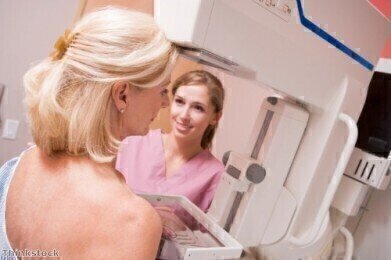-
 Breast cancer radiotherapy heart disease risk smaller than believed, study shows
Breast cancer radiotherapy heart disease risk smaller than believed, study shows
Bioanalytical
Breast cancer radiotherapy heart disease risk smaller than believed, study shows
Mar 15 2013
The risk of heart disease following breast cancer radiotherapy is smaller than previously believed.
A study conducted by the University of Oxford and researchers in Scandanavia looked at more than 2,000 women who were treated with radiotherapy in Sweden and Denmark, with the risk of radiation-related heart disease small for most women.
It has been long regarded that radiotherapy decreases the risk of breast cancer returning for numerous women after it was removed by surgery.
The heart receives some incidental radiation exposure during this treatment, especially if the cancer occurs in the left breast or if the lymph nodes inside the chest are irradiated.
Doctors have been unsure about whether modern radiotherapy increases the risk of heart disease and how big it is, but this latest work has produced a dose-response relationship for ischaemic heart disease, which is the most frequent form of the condition.
The quantitative analysis was backed with funding from the Oxford University Clinical Trial Service Unit from Cancer Research UK, the British Heart Foundation and the Medical Research Council.
Professor Sarah Darby, study author at the University of Oxford, said: "We carried out this work because doctors could not reliably estimate the risk of heart disease in women treated with radiotherapy for breast cancer.
"Doctors can now estimate the risk and know that in most cases it will be very small so that they can reassure their patients. In addition, the few women for whom radiotherapy poses undue risk can now be identified, so that alternative techniques can be considered."
The study found that radiotherapy would lead to an increase in the risk of heart disease if radiotherapy is provided in the same way.
Kate Law, director of clinical research at Cancer Research UK, said radiotherapy is a "very effective" for breast cancer and this has played a role in boosting survival for the condition to more than 85 per cent.
Posted by Neil Clark
Digital Edition
Chromatography Today - Buyers' Guide 2022
October 2023
In This Edition Modern & Practical Applications - Accelerating ADC Development with Mass Spectrometry - Implementing High-Resolution Ion Mobility into Peptide Mapping Workflows Chromatogr...
View all digital editions
Events
Jan 20 2025 Amsterdam, Netherlands
Feb 03 2025 Dubai, UAE
Feb 05 2025 Guangzhou, China
Mar 01 2025 Boston, MA, USA
Mar 04 2025 Berlin, Germany











